
Food addiction is not only an illness, it’s a marketing tool
Supermarkets, our modern-day pushers who often aim their most addictive products at children.
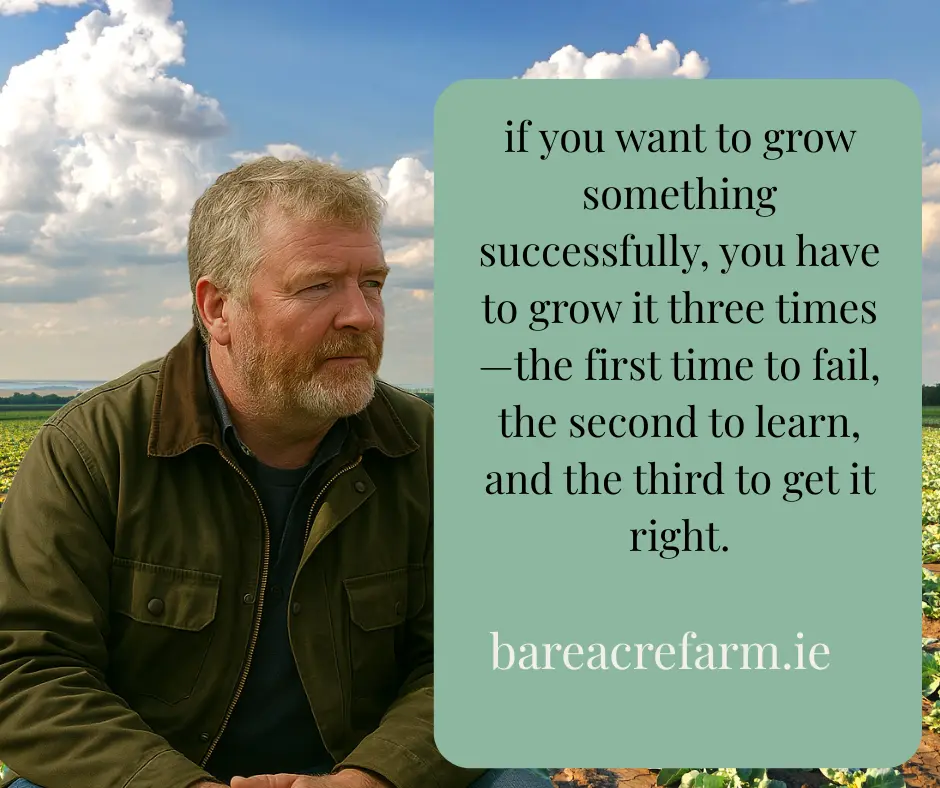

Supermarkets, our modern-day pushers who often aim their most addictive products at children.
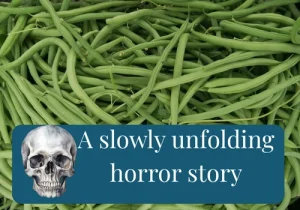
a slowly unfolding horror story.
Chlorpyrifos was banned in the EU because of its links to brain damage in children and developmental disorders. Yet, beans treated with Chlorpyrifos are found on supermarket shelves 12 months of the year.
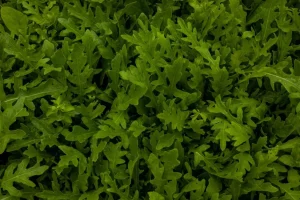
You very seldom see irish grown baby leaf salads on supermarket shelves, why is that?
The problem for irish growers is that the multiples have built their system to suit high-volume, factory-farmed, often hydroponically grown greens
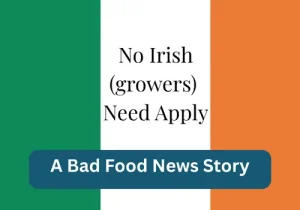
The supermarket model is built for low-cost, high-margin produce. Taste, nutrition, and freshness don’t count. Cheap food is never really cheap — someone always pays — and for too long that has been the Irish grower.
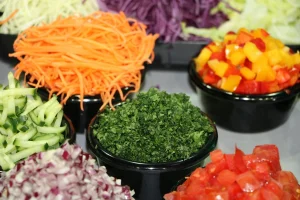
From the moment a leaf, a pea pod, or a head of broccoli is severed from the plant, its life of decline begins. Nutrients — especially vitamin C and volatile compounds — start degrading immediately.
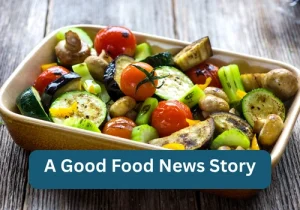
Perhaps there was always that memory of real food, buried somewhere deep in our subconscious, a fragment of childhood, of food cooked by our grandmothers or vegetables grown by an ageing uncle, and it has taken us a long time to realise what it was we were missing.
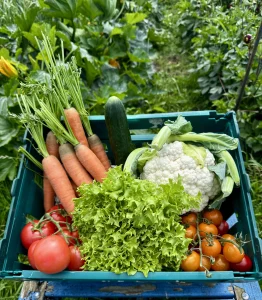
Have you ever wondered if a veg box might be right for you? Many people don’t realise just how much it can simplify and enhance life, making it easier to eat well and support the environment while still being easy and convenient. Here are just five of the many reasons

From the very first week, it became clear that the farm meant more to people than we’d expected. The shop wasn’t just a place to buy vegetables and coffee.
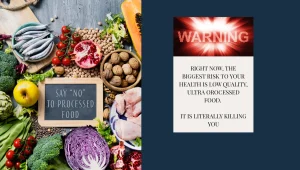
Our diets have changed — and not for the better. We’re eating more ultra-processed foods: ready meals, sugary cereals, sweetened drinks, heavily refined snacks. These foods are quick and cheap, but low in nutrients and high in additives.
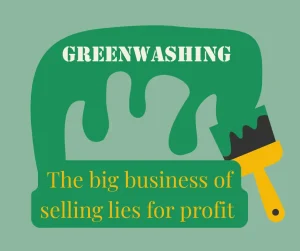
Greenwashing is when companies exaggerate or fabricate their environmental credentials to make their products look more eco-friendly than they really are. It’s usually—but not always—outright lies. Often, it’s clever marketing that leaves out the unpalatable details.

Supermarkets, our modern-day pushers who often aim their most addictive products at children.

a slowly unfolding horror story.
Chlorpyrifos was banned in the EU because of its links to brain damage in children and developmental disorders. Yet,

You very seldom see irish grown baby leaf salads on supermarket shelves, why is that?
The problem for irish growers is that the multiples have

The supermarket model is built for low-cost, high-margin produce. Taste, nutrition, and freshness don’t count. Cheap food is never really cheap — someone always pays

From the moment a leaf, a pea pod, or a head of broccoli is severed from the plant, its life of decline begins. Nutrients —

Perhaps there was always that memory of real food, buried somewhere deep in our subconscious, a fragment of childhood, of food cooked by our grandmothers

Have you ever wondered if a veg box might be right for you? Many people don’t realise just how much it can simplify and enhance

From the very first week, it became clear that the farm meant more to people than we’d expected. The shop wasn’t just a place to

Our diets have changed — and not for the better. We’re eating more ultra-processed foods: ready meals, sugary cereals, sweetened drinks, heavily refined snacks. These

Greenwashing is when companies exaggerate or fabricate their environmental credentials to make their products look more eco-friendly than they really are. It’s usually—but not always—outright